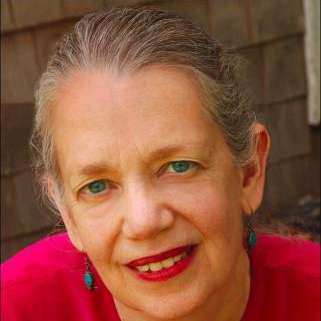Opera Parallèle reintroduced Jake Heggie and Terrence McNally’s Dead Man Walking this past weekend in an extraordinary production presented at San Francisco’s Yerba Buena Center for the Arts Theater. The opera was well served by the more intimate venue, which enlarged the internal struggles of the characters and allowed the audience to feel closer to the many nuances of those emotions.
Sister Helen Prejean’s story of being the spiritual advisor to violent criminals on Death Row is a compelling and difficult subject. It strikes to the heart of our sense of justice, revealing the central contradiction to capital punishment: how can we as individuals under the guise of the state practice the killing of killers? And Sister Helen adds another layer that exceeds that of logical contradiction: as a Christian culture, how can we fail to practice forgiveness?
In her own book on the events, Debbie Cuevas, a 16-year-old victim who was raped, tortured and nearly murdered by Robert Lee Willie, one of the men Sister Helen’s book is based on, writes: “People often ask how I feel about the death penalty now... Justice didn’t do a thing to heal me. Forgiveness did.”
That discussion becomes very clear in the opera through the many characters’ confrontations with Sister Helen. McNally carefully presents these arguments in beautifully succinct prose. There is the disaffected prison chaplain (John Duykers) whom the prisoner refuses to see. The outraged and grieving parents (Robert Orth, Kristin Clayton, Joseph Meyers and Michelle Rice), who sing a quintet with Sister Helen, each offering a vision of their dead children before the possibility of death entered their lives; Sister Helen can only meet their outcries with the refrain “I’m sorry, so sorry.” And there are the various religious (led by Talise Trevigne as Sister Rose) who work with Sister Helen at the Sisters of St Joseph de Medaille and urge her to turn her compassion elsewhere toward the charities that comprise their mission.
The prisoner, Joseph De Rocher, offers little except defiance as an argument for his pardon. Wonderfully sung and enacted by baritone Michael Mayes, the very guilty De Rocher ultimately expresses regret and walks more or less willingly into the role of sacrifice as a form of cleansing. He is matched with an equally compelling performance by Jennifer Rivera as Sister Helen. Their interpretations of these two characters’ struggle with human capabilities for evil and good were exquisitely detailed and subtle, under the direction of Brian Staufenbiel.
And they have terrific voices. Everyone in the production did, the entire cast of 1,000s. Did I forget to mention that? The uniformly excellent singing was so evident as to be almost unremarkable, like the fine crystal glass holding a rich and complex wine.
Forgiveness is most represented by the grief of De Rocher’s mother. Incapable of believing her son is anything but good, she requests forgiveness from the Pardons and Parole Board in a long recitative/aria. Mezzo-soprano Catherine Cook sang superlatively, lacing her notes with intense emotional pain and fervent desire.
Opera Parallèle's production was fluid and dynamic. The sets, designed by Dave Dunning and Stage Director Brian Staufenbiel, included tall screens that worked as stylized representations of the doors and walls of the prison cells that moved – easily they read as cages or spider webs. Reconfiguring the screens turned the cells into a dense and seemingly inescapable maze.
Lights descended occasionally to nestle into the humanity on stage, suggesting the individual’s soul or spirit. Videos, designed by David Murakami and Projection Designer Frederic Boulay, were projected onto the segmented screens of the upstage, each image taking on layers of meaning. The flashing broken lines of the highway Sister Helen drives to visit De Rocher become like a pure spirit moving skyward toward the imagined home of her god.
Last, but certainly not least, were the excellent musicians in the pit conducted by Artistic Director and Conductor Nicole Paiement. The original orchestra of 70+ was reduced for this production by half, but not to any loss. Jake Heggie’s music retained a lush fullness, and this reduction assures that this thought-provoking opera can be produced by a wider variety of houses and companies.
We in the Bay Area are lucky to have this adventurous, intelligent and imaginative company presenting their incomparable productions. The opera world is blessed to have companies like Opera Parallèle that work outside the box of mainstage opera.


